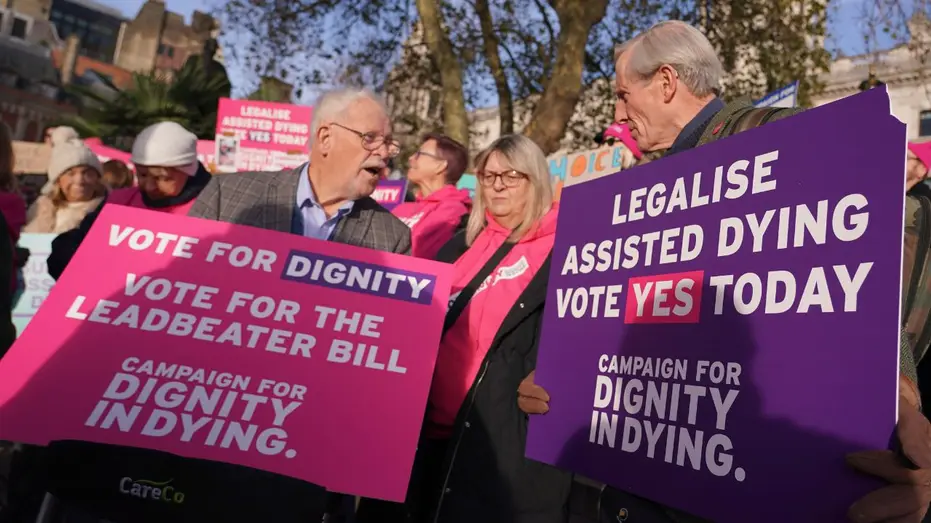The British Parliament has made a significant move towards legalizing assisted dying, with members of the House of Commons voting 330 to 275 in favor of the controversial bill. This development marks a crucial milestone in the years-long campaign supported by prominent figures and emotional testimonies.
Although the bill must still pass through the House of Lords and parliamentary committees, Friday’s vote represents the most critical hurdle to making the UK one of the few nations to allow terminally ill individuals to end their lives legally.
The proposed legislation is designed for terminally ill people with less than six months to live, who are deemed capable of making the decision themselves. It requires approval from two doctors and a High Court judge, ensuring safeguards.
This places the UK in line with countries like Canada, New Zealand, and Spain, and several US states, which already permit some form of assisted dying. Supporters argue it provides dignity to those facing agonizing deaths while critics express concerns about the adequacy of safeguards and the potential pressures on vulnerable patients.

UK Parliament Takes Major Step Toward Legalizing Assisted Dying After Historic Vote
The debate has deeply divided Parliament, with MPs allowed a free vote to act according to their conscience. This rare decision-making process on such a personal issue has left many MPs visibly strained.
High-profile campaigners like Esther Rantzen, a TV presenter with advanced lung cancer, have urged lawmakers to act now, arguing that the current laws leave terminally ill people with only dire options like prolonged suffering or traveling abroad for assisted dying.
Supporters of the bill believe it addresses profound suffering and alleviates the pressure on the UK’s strained palliative care services. Polling suggests broad public support, with proponents emphasizing the dignity and autonomy it offers terminal patients.
However, opponents fear that the timing is premature given the challenges faced by the underfunded National Health Service (NHS). They worry that some patients may feel coerced into assisted dying to avoid being a burden on their families.
The bill mirrors the Oregon model, which restricts assisted dying to terminal illnesses and emphasizes rigorous oversight. It stops short of allowing euthanasia, which involves another person ending a patient’s life.
Assisted dying remains a criminal act in the UK, with penalties including up to 14 years in prison. This vote represents a pivotal moment in British lawmaking, with advocates and critics alike acknowledging its profound ethical, legal, and societal implications.
